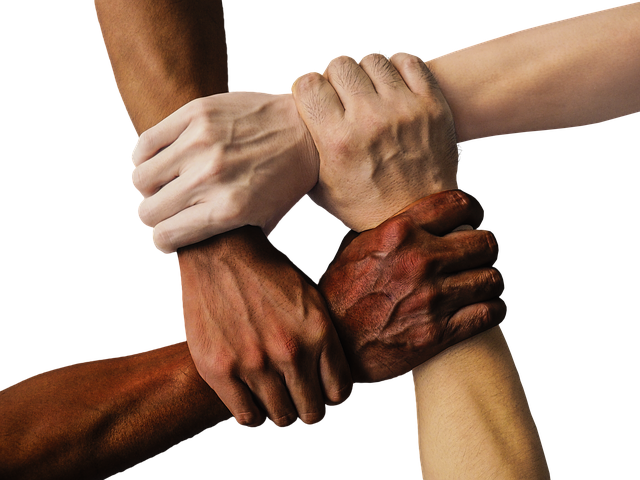
Let's Talk About Race
By Vickie Woodhead, Communications Co-Chair
I recently attended “A Conversation with Damon Young: Race, Culture, and Politics in the Age of New Media” in McConomy auditorium, which was an event that is part of the MLK series of events currently happening on campus. During the Q&A section of the evening, after several questions had been asked about “how to bridge the gap between various ethnic groups”, the presenter finally commented that he perceived a need for more conversations like this as it seemed that people were eager for the opportunity to have these types of discussions.
I’ve been thinking a lot about this comment. A graduate student in the audience was quick to point out that there is room on our campus to have these conversations - the Center for Diversity and Inclusion is a new department that houses space for students to gather and share their concerns and ideas about identity, along with staff to support these efforts. It serves as a safe space to exist and be heard for students, but with a specific focus on students that have been historically underrepresented on campus.
As our campus moves toward officially recognizing our deficiencies around supporting underrepresented students, where does this leave staff? Staff should not have the option of opting-out on our campus’ transformation around topics of inclusion for identity. As a half-Korean/half-White woman that grew up in a tiny farming town in Pennsylvania, race is something that I quickly learned that I couldn’t ignore. I was 6 years old the first time a classmate called me a racial slur, and I went home and asked my mom what it meant because I had never heard a word like that before. I was taught from an early age that my race and how I looked played an important part in how I was received by others and my peers around me, and while it wasn’t a particularly nice lesson, it is one that has had a huge impact on my interest in learning about social justice issues around race and identity.
I look White and have a lot of privilege as a result of being able to blend into most spaces that I frequent. I believe that it’s because of this, my mixed race background, and my openness with discussing issues of identity that a lot of my students and colleagues feel a comfort with me in discussing issues of race and identity. I once had a colleague ask me the question - “Why are people always pulling the 'race card'?” My answer to them is simple - many of us don’t have a choice. We are constantly having our identities foisted upon us, and it’s something that we think about all of the time because it impacts us daily. If you have never been in the position of being constantly forced to confront and think about your race, it’s understandably difficult to understand what that feels like.
In my work with advising students, I have conversations with my students about how their identity impacts them on a regular basis. This is a topic that I’m comfortable discussing in-depth because of my personal history and my interest in race and identity as a topic, but for many of my White friends and colleagues conversations along these lines become a dangerous minefield full of opportunities to offend. My hopeful takeaway for you is this: putting yourself out there in conversations around race in the genuine interest of connecting with those that are different than you is worth the risk of making a mistake. I once had a student walk into my office and bluntly ask me the question “I have been wondering all year… What are you?” This is a question that is typically immediately off-putting to me, but in the context of a person I already knew and cared about I understood the meaning behind his actual question: “What is your ethnic background?”, and we were able to have a jovial conversation about both of our ethnicities and families and shared some interesting facts about both. For me, this is the difference between being offensive and being curious - the aspect of care that I can perceive behind the question.
Regardless of where we come from, many of us take pride in our family history and origin and how we have landed where we are. This topic doesn’t need to be taboo! I encourage each and every one of you to challenge yourself to become conversational around topics of race and identity. On a campus as diverse as Carnegie Mellon University I believe this is a competency that we should all consider as an important and even mandatory piece of our personal and professional work.
If you are reading this and are wondering where to even begin to be comfortable talking about race, I suggest the following resources as some of my favorite spaces to begin:
- Get connected with the wonderful staff we already have at the Center! We have people doing great work around a lot of diverse topics.
- Gina Crosley-Corcoran’s “Explaining White Privilege to A Broke White Person” (there is some strong language in this article).
- Diverse Issues in Higher Education
- For podcast listeners, NPR’s Code Switch is one of my absolute favorites.
Did I miss something critical? Do you want to talk more on this topic? Please feel free to reach out to me! I would love to open up dialogue for staff on campus. It’s time that we all find our own space to talk about race at CMU.